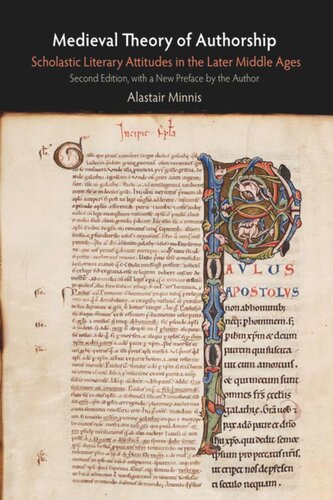

Most ebook files are in PDF format, so you can easily read them using various software such as Foxit Reader or directly on the Google Chrome browser.
Some ebook files are released by publishers in other formats such as .awz, .mobi, .epub, .fb2, etc. You may need to install specific software to read these formats on mobile/PC, such as Calibre.
Please read the tutorial at this link: https://ebookbell.com/faq
We offer FREE conversion to the popular formats you request; however, this may take some time. Therefore, right after payment, please email us, and we will try to provide the service as quickly as possible.
For some exceptional file formats or broken links (if any), please refrain from opening any disputes. Instead, email us first, and we will try to assist within a maximum of 6 hours.
EbookBell Team

4.3
98 reviewsAvailable again with a new preface, this classic work of medieval literary scholarship argues that discussion of late-medieval literary works has tended to derive its critical vocabulary from modern, not medieval, theory, and offers instead a conceptual equipment which is at once historically valid and theoretically illuminating.
Available again with a new preface, this classic work of medieval literary scholarship argues that discussion of late-medieval literary works has tended to derive its critical vocabulary from modern, not medieval, theory, and offers instead a conceptual equipment which is at once historically valid and theoretically illuminating.